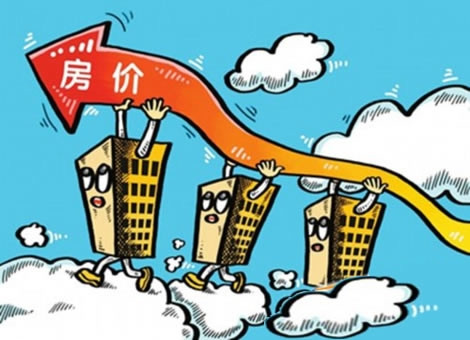China's housing market is recovering, but unevenly. First-tier cities, including Beijing, Shanghai and Shenzhen, have seen a real estate boom in the first two months of the year, with housing inventory dropping after the government issued a series of policies aimed at clearing the property glut across the country.
中國(guó)的房地產(chǎn)市場(chǎng)正在復(fù)蘇,但并不平均。包括北京、上海和深圳在內(nèi)的一線城市,在今年前兩個(gè)月都看到了房地產(chǎn)熱潮。隨著住房庫(kù)存的下降,政府出臺(tái)了一系列旨在清理房地產(chǎn)過剩的政策。
New home prices in January increased about 52.7 percent year-on-year in Shenzhen, followed by Shanghai (21.4 percent) and Beijing (11.3 percent), according to a recent report of the National Bureau of Statistics. In many third- and fourth-tier cities, however, a notable overhang of unsold houses continues to limit the expected increase in housing prices.
國(guó)家統(tǒng)計(jì)局最近的一份報(bào)告顯示,一月份深圳的房?jī)r(jià)上漲了約52.7%,其次是上海的21.4%和北京的11.3%。然而在許多三、四線城市,未售出的房屋過剩仍然限制著房?jī)r(jià)的預(yù)期增加。
China has less than 720 million square meters of unsold commercial residential buildings that have finished construction.
截止目前為止,中國(guó)完成建設(shè)的商品住宅房面積不足7.2億平方米。

The total undeveloped real estate land, on the other hand, is more than 366 million sq m, which roughly equals 1 billion sq m of commercial housing. The designed buildings, if all of them finish construction, could be sold in 10 months or so.
另一方面,中國(guó)未開發(fā)的房地產(chǎn)用地總面積為3.66億平米,這大致相當(dāng)于10億平米商品房。那些已經(jīng)進(jìn)入設(shè)計(jì)階段的建筑,如果完成建設(shè),將會(huì)在10個(gè)月左右出售。
The more than 300 third-tier cities and 2,000 fourth-tier cities or counties, characterized by less advanced industrial development, limited inflow of non-local people and relatively weak demand for commercial housing, need not worry too much about their housing inventory.
300多個(gè)三線城市和2000多個(gè)四線城市或者區(qū)縣,由于其工業(yè)發(fā)展較慢,非本地人口流入有限,所以對(duì)商品房的需求比較低,不必過分擔(dān)心自己的住房存量。
The real dangers are in major cities, where land is becoming increasingly scarce, property prices are escalating, demand for low-cost housing is high and real estate financing remains unregulated.
真正的房地產(chǎn)危機(jī)存在于大城市中。在大城市中,土地變得越來越稀缺,房地產(chǎn)價(jià)格持續(xù)上漲,對(duì)低成本住房的需求較高,房地產(chǎn)融資仍然不受監(jiān)管。
Of the four first-tier cities, Guangzhou has seen the mildest change in housing prices, while Shenzhen, although known for a drastic increase in prices of new homes, actually lags behind many smaller cities in terms of the amounts involved in transactions.
在四個(gè)一線城市當(dāng)中,廣州市的房?jī)r(jià)已經(jīng)出現(xiàn)輕微改變,而深圳,雖然新房?jī)r(jià)格大幅上升,卻在交易金額方面落后于許多較小的城市。












